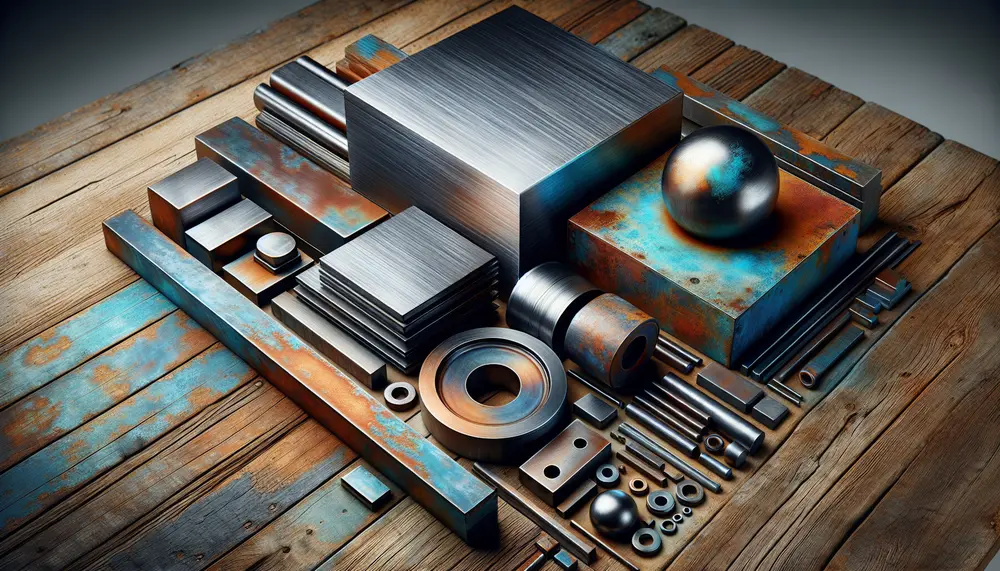Base Metal
Base Metal
Was ist ein Base Metal?
In der Stahlproduktion und im Stahlhandel bezieht sich der Begriff Base Metal auf die häufig vorkommenden Metalle, aus denen der Großteil der kommerziellen Metallprodukte hergestellt wird. Diese Metalle, darunter Eisen, Kupfer, Zinn und Zink, sind reichlich vorhanden und daher weniger kostspielig als Edelmetalle wie Gold und Silber.
Die Rolle von Base Metal in der Stahlproduktion
In der Stahlproduktion wird Eisen, ein typisches Base Metal, aufgrund seiner Verfügbarkeit und seiner Eigenschaften, die es ideal für die Produktion von Stahl machen, bevorzugt. Eisen wird durch Erhitzen in einem Hochofen, in einem Prozess, der als Reduktion bezeichnet wird, von seinem Erz gespalten. Das Ergebnis ist Roheisen, was der erste Schritt in der Herstellung von Stahl ist. Dieses Base Metal spielt eine zentrale Rolle bei der Herstellung dieses wichtigen Werkstoffs.
Wie sind Base Metals im Stahlhandel wichtig?
Im Stahlhandel spielt das Base Metal Eisen ebenfalls eine herausragende Rolle. Der Preis des Eisens und seine Verfügbarkeit auf dem Weltmarkt beeinflussen direkt den Preis und die Verfügbarkeit von Stahl. Darüber hinaus weisen andere Base Metals wie Kupfer, Zink und Blei, die oft in Bau- und Industrieanwendungen eingesetzt werden, ebenfalls eine starke Präsenz auf dem Weltmarkt auf. Daher sind die Schwankungen der Preise dieser Base Metals auch ein wichtiger Faktor im globalen Stahlhandel.
Fazit
Zusammenfassend lässt sich sagen, dass Base Metals eine fundamentale Rolle in der Stahlproduktion und im Stahlhandel spielen. Sie sind aufgrund ihrer wirtschaftlichen Verfügbarkeit und ihren einzigartigen physikalischen Eigenschaften entscheidend für die Erzeugung und den Handel von Stahlprodukten weltweit.
Blog Posts with the term: Base Metal
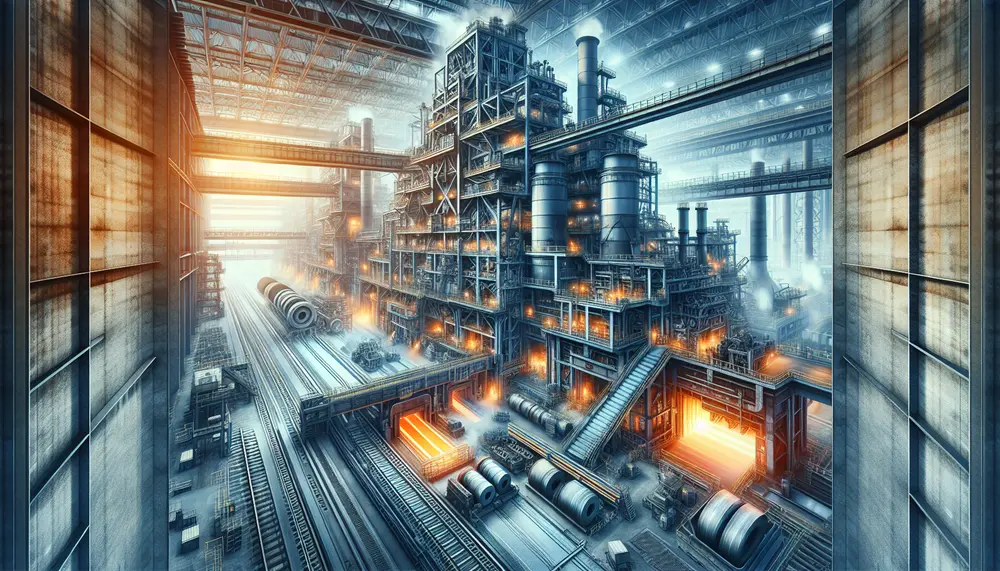
The article provides an overview of the steel making process, detailing how raw materials like iron ore, coke, and limestone are transformed into versatile and durable steel through a complex series of steps depicted in a flow diagram. It discusses...
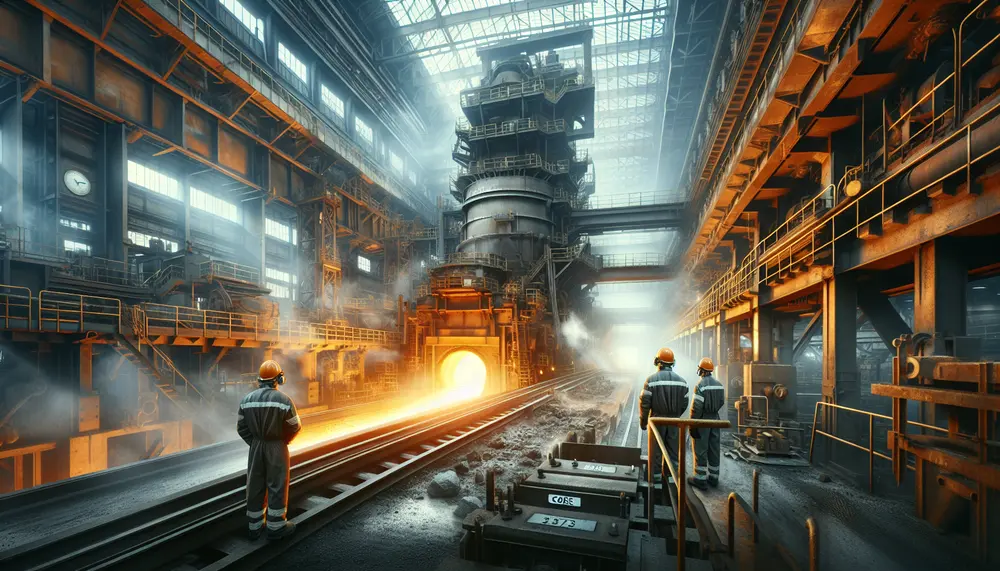
Coke is crucial in steel production, providing heat and chemical reactions for smelting iron ore while also structuring the blast furnace. However, its use emits pollutants and CO2, contributing to environmental concerns....
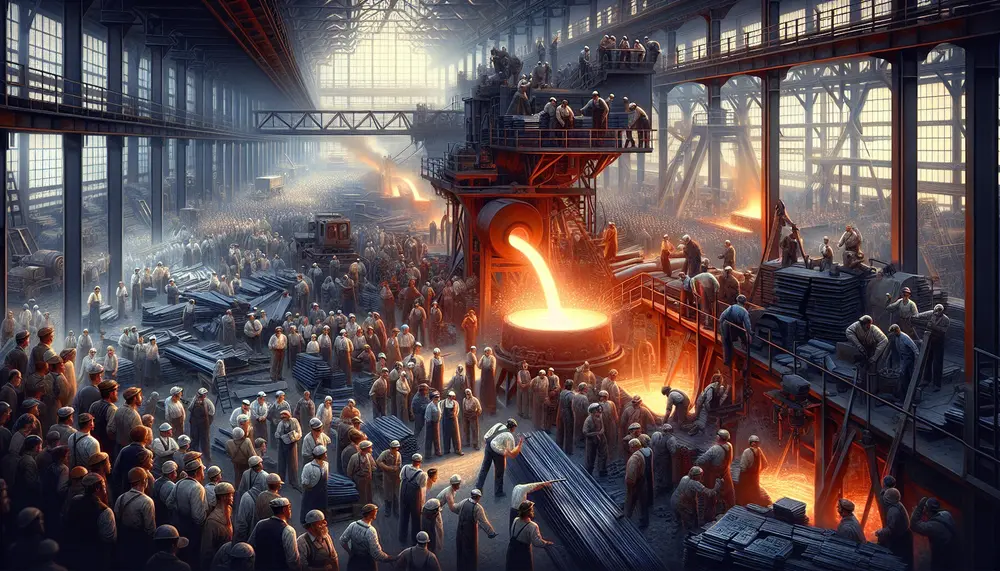
Steel making transforms iron ore into steel using blast furnaces or electric arc furnaces, involving processes like smelting and carbon adjustment to achieve desired properties. The production includes primary methods like Basic Oxygen Steelmaking and Electric Arc Furnace, followed by...
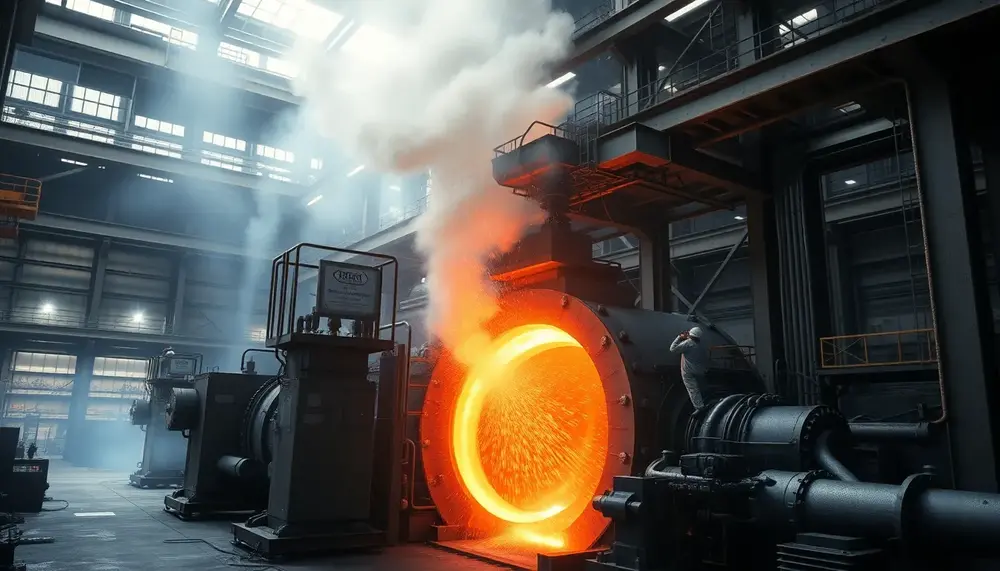
The steel making converter process is crucial for transforming raw materials into high-quality steel, accounting for 70% of global production through efficient and sustainable methods involving oxygen blowing to remove impurities....
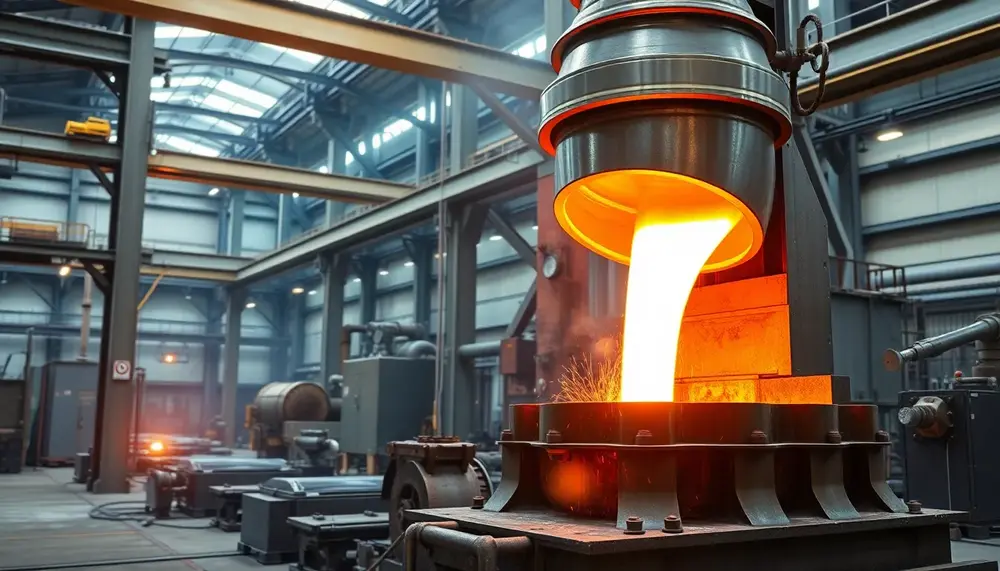
Vacuum Induction Melting (VIM) revolutionizes steel-making by enabling ultra-pure alloys through precise melting, impurity removal in a vacuum, and real-time composition control. Recent innovations like advanced monitoring systems, hybrid techniques, and energy-efficient designs enhance material quality while promoting sustainability for...
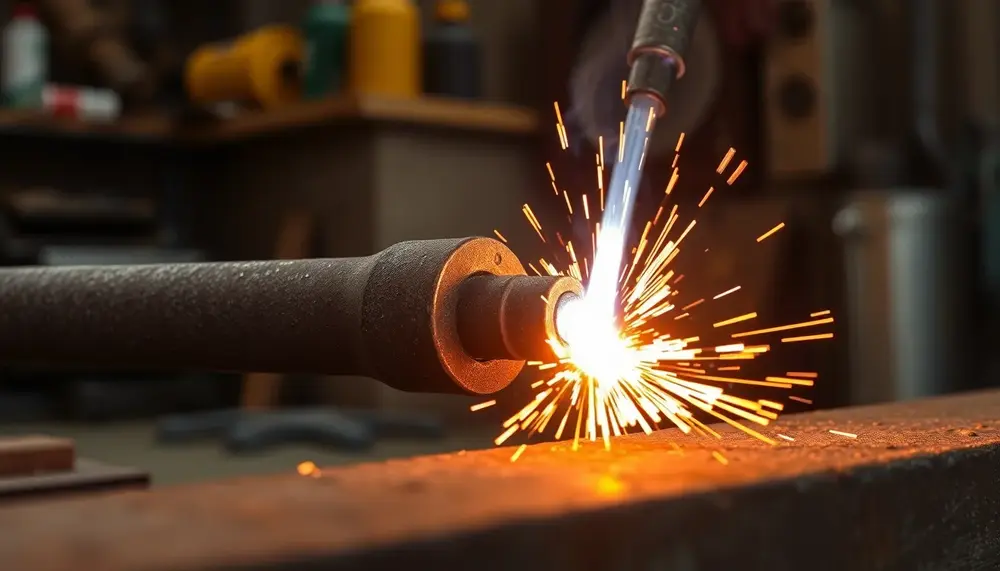
Brazing cast iron to steel is a challenging process due to their differing thermal behaviors, requiring precise preparation, the right filler material like bronze, and proper use of flux. Success depends on careful cleaning, gradual preheating, and maintaining controlled temperatures...
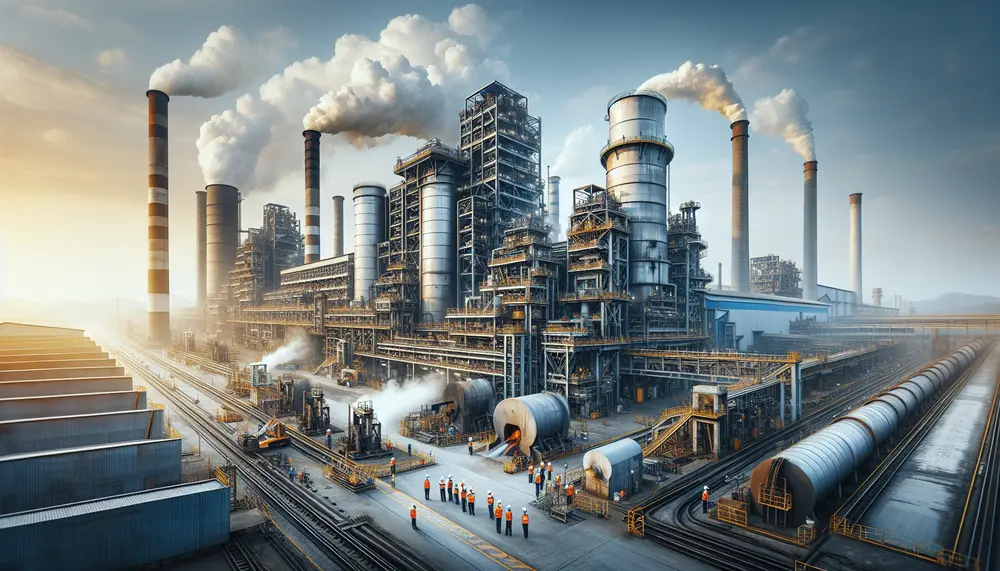
The steel making process in India combines traditional practices with modern technology, utilizing abundant iron ore and focusing on sustainability. The industry is vital to the economy, supporting various sectors and striving for self-sufficiency while facing challenges such as pollution...
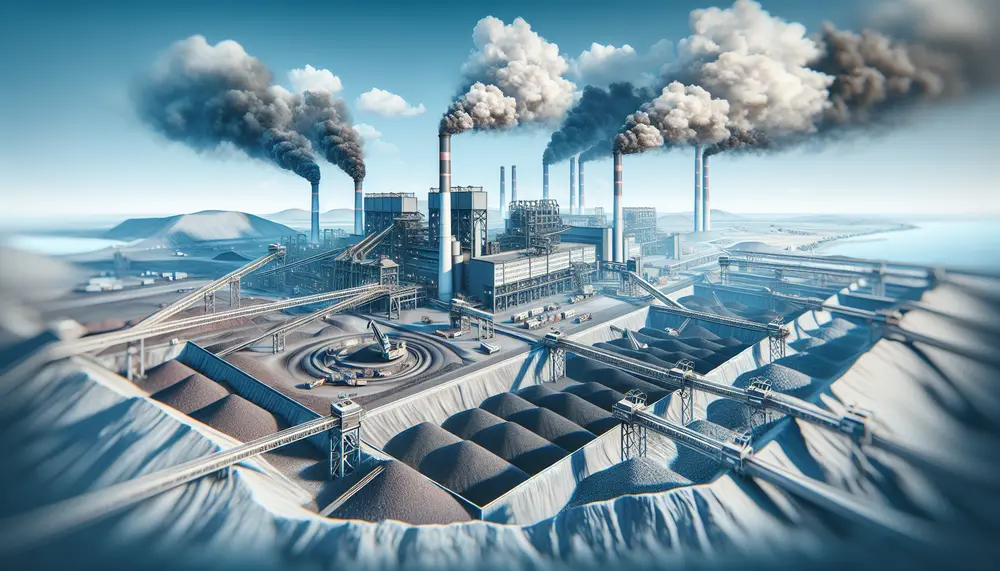
Ironmaking and steelmaking are interdependent processes where iron ore is first transformed into molten pig iron in a blast furnace, then refined to create steel using either basic oxygen steelmaking (BOS) or electric arc furnaces (EAF). The evolution of these...

